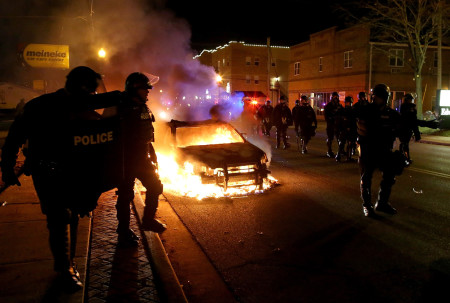While a Missouri grand jury declined on Monday to indict Ferguson police Officer Darren Wilson in the shooting death of unarmed teenager Michael Brown, sparking renewed unrest, Wilson may not be totally exonerated.

A St. Louis County grand jury returned no indictments against Wilson, 28, who could have faced charges ranging from second-degree involuntary manslaughter to first-degree murder in the fatal August 9 shooting of Brown. But the US Justice Department has opened a federal civil rights investigation, which could lead to a separate prosecution.
However, numerous legal experts have been quoted as saying such a prosecution remains is unlikely to succeed, because the government would have to show not just that Wilson improperly shot Brown, but also that he did it with the specific intention of violating the young man’s civil rights.
Attorney General Eric Holder acknowledged on Monday night that “federal civil rights law imposes a high legal bar in these types of cases,” but he said the investigation “remains ongoing.”
“The federal inquiry has been independent of the local one from the start, and remains so now,” Holder said in a statement. “Even at this mature stage of the investigation, we have avoided prejudging any of the evidence.”
More likely are civil proceedings by Brown’s family and disciplinary action by local and state police officials.
Brown’s family hasn’t yet said whether it will sue Wilson — not even in a statement after the grand jury’s decision was announced. But Benjamin Crump, their attorney, told journalists earlier on Monday, prior to the grand jury decision, that if Wilson faces no state or federal charges, “the only remedy they will have left is a legal civil matter.”
Crump could have an easier time winning a civil judgement than St. Louis County Prosecuting Attorney Bob McCulloch would have had winning a criminal prosecution.
McCulloch and his team would have had to persuade all 12 members of a criminal jury that Wilson committed a crime beyond any “reasonable doubt.”









